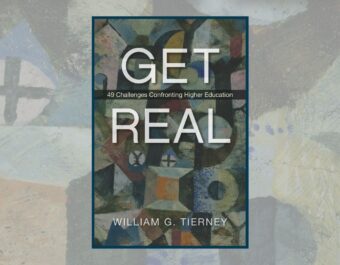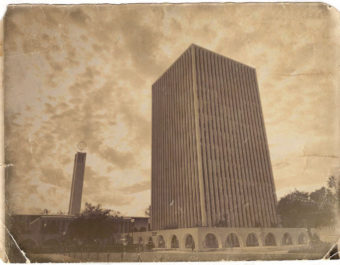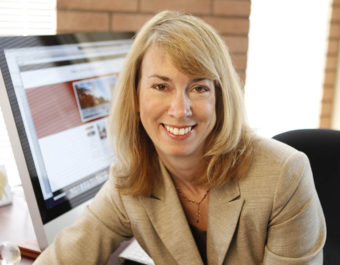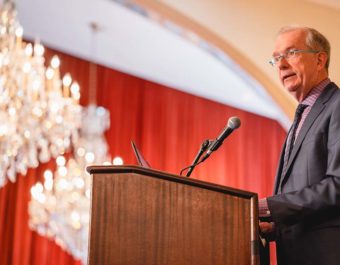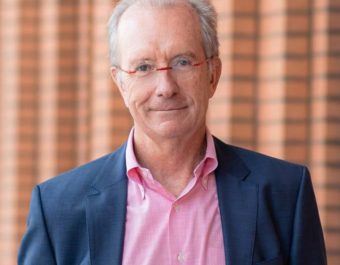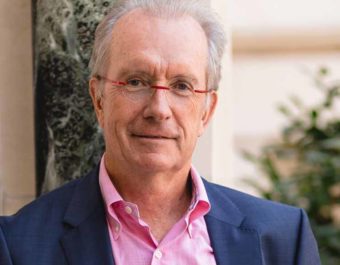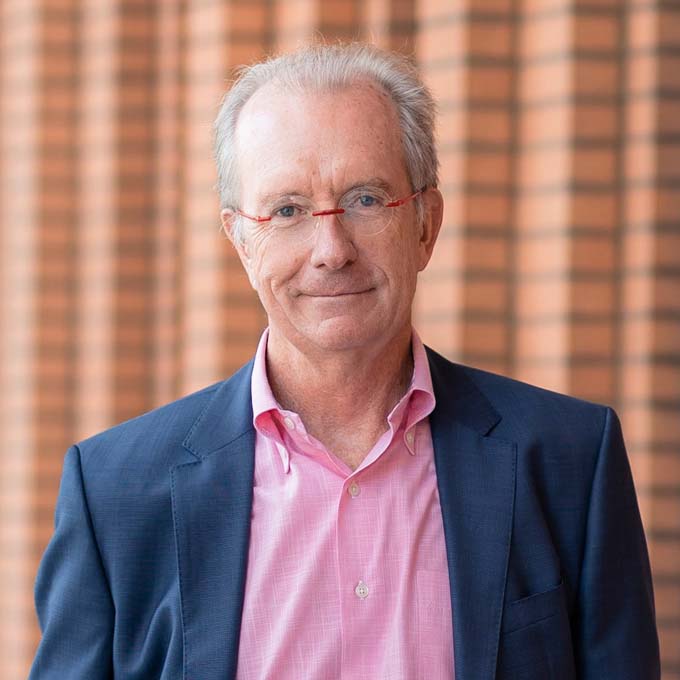
University Professor Emeritus and Founding Director, Pullias Center for Higher Education
PhD, Administration and Policy Analysis, Stanford University
Contact Info
William G. Tierney is a University Professor Emeritus and the Founding Director of the Pullias Center for Higher Education at the University of Southern California. He is an expert on higher education policy analysis, governance, and administration; his research interests pertain to faculty productivity, decision making, organizational re-engineering, and issues of equity.
Having spent over two decades conducting research on college access for underrepresented youth, as well as improving the performance of colleges and universities, Tierney is committed to informing policies and practices related to educational equity and postsecondary effectiveness. He has served as President of the American Educational Research Association (AERA), currently serves on the International Advisory Board of King Abdulaziz University (Saudi Arabia) and is an Interdisciplinary Research Fellow at the University of Hong Kong.
Extended bio and CV at USC Rossier
Projects
Tierney is a member of the Digital Equity in Education team at the Pullias Center, developing and researching digital games and tools to engage students in learning about college, and studying the real-life impact these tools have on students’ lives.
Recent Books
 Get Real: 49 Challenges Confronting Higher Education (Author)
Get Real: 49 Challenges Confronting Higher Education (Author)
SUNY Press, December. 2020
Buy now: SUNY Press
In Get Real, Tierney provokes creative, forward-looking public discussion about what higher education could and should look like in the twenty-first century through forty-nine short essays. Each one touches on critical issues–diversity, free speech, the rise of for-profit colleges, and student debt–and aims to provide readers with background information so they can better understand and form their own opinions on such topics.
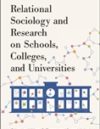 Relational Sociology and Research on Schools, Colleges, and Universities (Co-editor)
Relational Sociology and Research on Schools, Colleges, and Universities (Co-editor)
SUNY Press, May. 2020
Buy now: SUNY Press
Relational Sociology and Research on Schools, Colleges, and Universities demonstrates the value of introducing new relational methods and epistemologies in educational research. The contributors examine the roles and significance of ongoing transactions among connected social actors—students, peers, families, teachers—in a variety of institutional contexts. The book explores various uses and applications of relational sociology in education, while highlighting its promise to provide fresh insight into intractable problems of inequity in US schools.
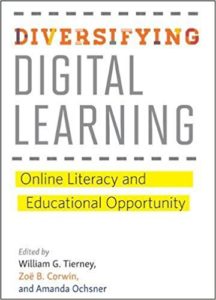 Diversifying Digital Learning: Online Literacy and Educational Opportunity (co-editor)
Diversifying Digital Learning: Online Literacy and Educational Opportunity (co-editor)
Johns Hopkins University Press, Feb. 2018
Buy now: Amazon | Johns Hopkins UP
Diversifying Digital Learning outlines the pervasive problems that exist with ensuring digital equity and identifies successful strategies to tackle the issue. Bringing together top scholars to discuss how digital equity in education might become a key goal in American education, this book is structured to provide a framework for understanding how historically underrepresented students most effectively engage with technology—and how institutions may help or hinder students’ ability to develop and capitalize on digital literacies.
 Rethinking Education and Poverty (editor)
Rethinking Education and Poverty (editor)
Johns Hopkins University Press, Sep. 2015
Buy now: Amazon | Johns Hopkins UP
In Rethinking Education and Poverty, William G. Tierney brings together scholars from around the world to examine the complex relationship between poverty and education in the twenty-first century. International in scope, this book assembles the best contemporary thinking about how education can mediate class and improve the lives of marginalized individuals.
 New Players Different Game: Understanding the Rise of For-Profit Colleges and Universities (co-author)
New Players Different Game: Understanding the Rise of For-Profit Colleges and Universities (co-author)
Johns Hopkins University Press, Aug. 2007
Buy now: Amazon | Johns Hopkins UP
As the economic value of education increases, as more students seek to complete college courses while forgoing the “undergraduate experience,” and as funding for public higher education decreases, the for-profit higher education sector has exploded. In New Players, Different Game, William G. Tierney and Guilbert C. Hentschke compare for-profit and not-for-profit models of higher education to assess the strengths and weaknesses of both.
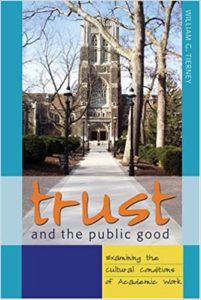 Trust and the Public Good
Trust and the Public GoodPeter Lang International Academic Publishers, Oct. 2006
Buy now: Amazon | Peter Lang
Trust and the Public Good considers the role of trust in academic life – as related to social networks, communities, and organizational communication. The text also considers the unique relationship between higher education and the public, noting that trust is essential to fulfillment of the public good.
Latest News
More news about William G. Tierney
Recent Media

Inside Higher Ed
July 25, 2019
William G. Tierney describes the mistakes that brought down the University of Southern California.
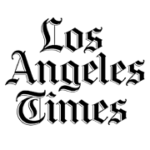 The Los Angeles Times
The Los Angeles Times
March 21, 2019
USC has a new president. Now the trustees and faculty have to change
 University World News
University World News
December 7, 2018
Academic freedom goes on trial in Hong Kong
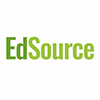 EdSource
EdSource
September 20, 2018
California’s Next Governor Has Opportunity To Set A Bold New Higher Education Agenda
 Inside Higher Ed
Inside Higher Ed
September 12, 2018
Why University Presidents Are (And Aren’t) Losing Their Jobs
 The Chronicles of Higher Education
The Chronicles of Higher Education
August 8, 2018

